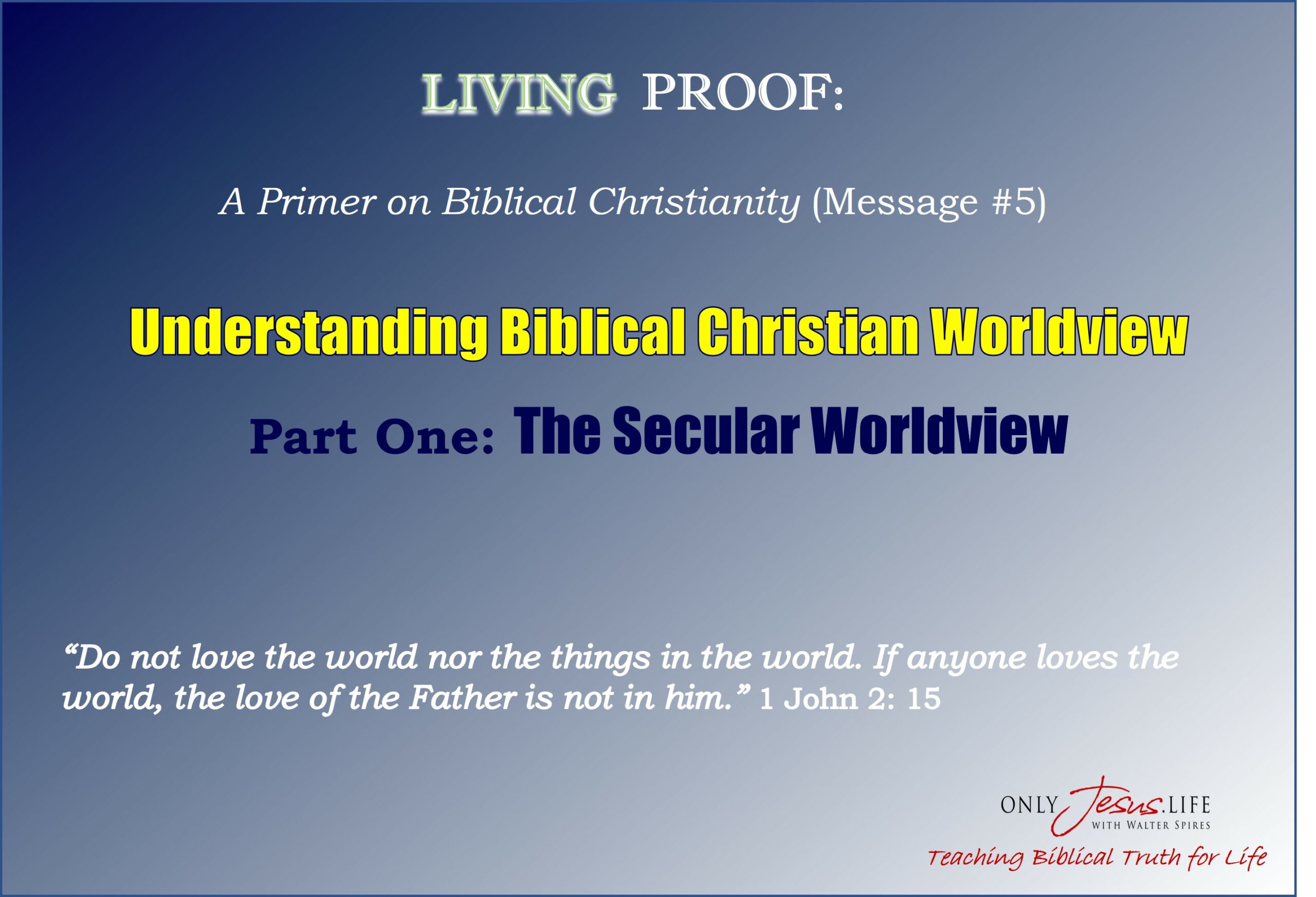Understanding the Biblical Christian Worldview
Understanding the Biblical Christian Worldview
The following information was published in a Focus on the Family article (2006).
“A recent nationwide survey completed by the Barna Research Group determined that only 4 percent of Americans had a “biblical” worldview. When George Barna, who has researched cultural trends and the Christian Church since 1984, looked at the “born- again” believers in America, the results were a dismal 9 percent.”
“Barna’s survey also connected an individual’s worldview with his or her moral beliefs and actions. Barna says, “Although most people own a Bible and know some of its content, our research found that most Americans have little idea how to integrate core biblical principles to form a unified and meaningful response to the challenges and opportunities of life.”
What does the term “worldview” mean?
Everyone has a worldview whether they know the definition or not. Many definitions for this term have been put forth depending on your source. Following is my best effort to summarize some of what I know from my own experience and read from other sources. After we broadly define worldview, I will subdivide and clarify the differences between secular and biblical Christian worldviews.
A worldview describes the framework or paradigm – the lens through which we view, process, even judge people, circumstances, and events in our world. Our values and belief systems are formed from our worldview. It is not too strong a statement to say that our worldview affects every area of our lives, including relationships and religion (whether one has any or not).
What is meant by the phrase “secular worldview”?
“But realize this, that in the last days difficult times will come. For people will be lovers of self, lovers of money, boastful, arrogant, slanderers, disobedient to parents, ungrateful, unholy, unloving, irreconcilable, malicious gossips, without self-control, brutal, haters of good, treacherous, reckless, conceited, lovers of pleasure rather than lovers of God, holding to a form of godliness although they have denied its power; avoid such people as these.”
2 Timothy 3: 1-5
The bottom line of what makes a worldview a secular one is clear. Man (or woman) is at the center of this view. Individuals would never articulate it this way, but they are their own “gods”. Some say they believe in a higher power but cannot define it because it sounds like some form of religion. Secular humanists measure themselves by themselves or other people in whom they believe or have faith for any number of human reasons.
In the secular humanistic worldview, moral absolutes do not exist. Morals are relative. Fairness and justice are high on their lists but completely depend on their personal views. Many are big nature believers or naturalists. They often refer to following the science as long as the “science” does not conflict with their views. Constant dilemmas are born from this worldview. That is obvious because each is his or her own god or ultimate authority. Most do not believe in an afterlife because where one spends eternity, if there was one, requires judging good and evil. Who gets to decide?
The closing passage clearly tells us how God feels about and responds to the secular humanistic worldview:
“For the wrath of God is revealed from heaven against all ungodliness and unrighteousness of people who suppress the truth in unrighteousness, because that which is known about God is evident within them; for God made it evident to them. For since the creation of the world His invisible attributes, that is, His eternal power and divine nature, have been clearly perceived, being understood by what has been made, so that they are without excuse. For even though they knew God, they did not honor Him as God or give thanks, but they became futile in their reasonings, and their senseless hearts were darkened. Claiming to be wise, they became fools, and they exchanged the glory of the incorruptible God for an image in the form of corruptible mankind, of birds, four-footed animals, and crawling creatures.” Romans 1:18-23
The good news is Christ died for the sins of those who hold to and practice such wickedness in the sight of God IF these individuals submit to the conviction of the Holy Spirit, confess their sins, and believe on the Lord Jesus Christ receiving Him as Savior.
Invitation
For those who continue to reject the love of God manifested exclusively thru Jesus Christ – His life, crucifixion, and resurrection – I implore you to reconsider. His blood satisfied the requirement of shed blood for the forgiveness of sins. He died for you! Please repent and confess your sins; believe in Him and receive Him as your Savior today. Heaven awaits all who do!
For godly sorrow produces a repentance without regret, leading to salvation, but the sorrow of the world brings about death.” 2 Corinthian 7:10
For Christ’s sake,


